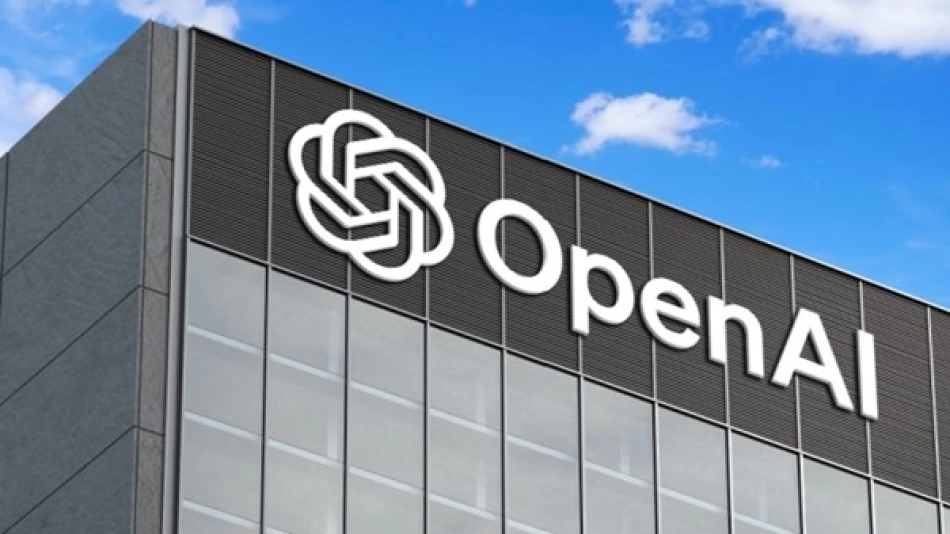
U.S. Judge Upholds Open AI's Trademark Rights, Setting Precedent
OpenAI Wins Trademark Battle Despite Competitor's Earlier Domain Registration
A federal judge in California has ruled in favor of OpenAI in a trademark dispute against Silicon Valley entrepreneur Guy Ravine, whose company "Open Artificial Intelligence" used the domain "open.ai" and similar branding. The decision highlights how trademark law prioritizes commercial use and consumer confusion over simple chronological precedence, setting an important precedent for AI companies navigating intellectual property disputes.
The David vs. Goliath Trademark Fight
U.S. District Judge Yvonne Gonzalez Rogers sided with OpenAI on Monday, ruling that Ravine's "Open Artificial Intelligence" company violated OpenAI's trademark rights through its use of the confusingly similar "Open A.I." branding. The case presented an unusual twist: Ravine had actually registered the "open.ai" domain in March 2015, several months before OpenAI was even founded.
Despite this chronological advantage, OpenAI filed suit against Ravine and his company in 2023, arguing that the entrepreneur had applied for trademark registration the day after OpenAI's public launch announcement. OpenAI's legal team successfully convinced the court that this timing demonstrated intentional consumer confusion and trademark exploitation.
Strategic Timing Trumps Early Registration
The ruling underscores a critical distinction in trademark law: owning a domain name doesn't automatically grant trademark rights. What matters more is active commercial use, market recognition, and—crucially—the intent behind trademark applications. Ravine's decision to file for trademark protection immediately after OpenAI's public debut proved legally damaging, suggesting opportunistic behavior rather than legitimate business development.
Implications for the AI Industry
This decision arrives at a pivotal moment for artificial intelligence companies, as the sector experiences unprecedented growth and competition. Similar trademark disputes have emerged across the tech landscape, from Meta's rebranding conflicts to various cryptocurrency naming battles. The ruling sends a clear message that established AI companies will aggressively defend their intellectual property, even against earlier domain registrants.
A Warning for AI Startups
For emerging AI companies, the case demonstrates the importance of conducting thorough trademark searches and avoiding names that could be construed as derivative of major players. The decision also highlights how courts will examine the timing and intent behind trademark applications, particularly when they coincide with competitor announcements.
Market Impact and Investor Considerations
The ruling reinforces OpenAI's market position and brand protection strategy as the company continues its rapid expansion and potential IPO preparations. For investors, the decision signals that OpenAI is serious about defending its intellectual property portfolio—a crucial asset for any technology company seeking to maintain competitive advantages.
The now-inactive "open.ai" domain represents a cautionary tale for domain speculation in the AI space. While domain parking was once a profitable strategy in early internet days, modern trademark law provides established companies with robust tools to reclaim confusingly similar assets, regardless of registration timing.
The precedent set by this case will likely influence how AI companies approach branding strategies and trademark protection, particularly as the sector continues consolidating around a few dominant players.
Most Viewed News

 Layla Al Mansoori
Layla Al Mansoori






